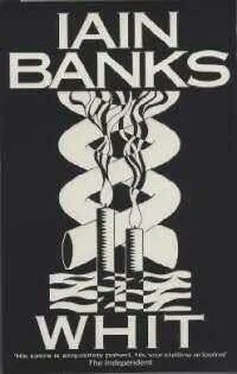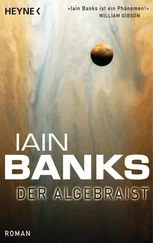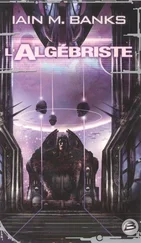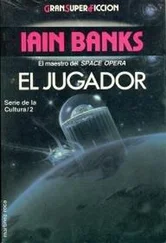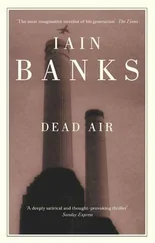
I was in my room, reading a book.
I turned a page. The curved shadow of one candle-lit white surface fell over another and the action made a small sharp rustling noise in the silence. Suddenly, a dizziness struck me, and I was acutely aware of the paper's thin dryness, rough against the skin of my fingers and seemingly conducting some powerful, disorienting energy from it to me. I sat as if stunned for a moment, while the unbidden memory of my first Healing coursed through me, suffused with the light of a distant season.
It was a hot summer's day; one of those close, still afternoons when distant haze over the hills or across the plain might become thunder before the evening, and stone walls and outcrops of naked rock will give off small bursts of sweet, heated air when you walk close by. My brother Allan and I had been playing daringly far away from our home at the farm, and daringly close to a main road. We had been stalking rabbits in the fields and looking for birds' nests in the hedgerows, all without success. I was five, he a couple of years older.
We found the fox lying in a just-cut field on the far side of the hedge from the road, where cars and trucks roared past in the sunlight.
The animal was small and still and there was dried blood round its nose and mouth. Allan poked the fox's body with a stick and pronounced it long dead, but I looked and looked and looked at it and knew that it could still live, and so went forward and stooped and raised it up, gathering its stiffened form into my arms and burying my nose in its fur.
Allan made noises of disgust; everybody knew foxes were covered in fleas.
But I felt the flow of life, in me and in the animal. A strange tension built in up me, like a blessed opposite of bottled-up anger, germinating, budding and blossoming then flowing out of me like a glowing beam of vitality and being.
I felt the animal quicken and stir in my hands.
In a moment it jerked, and I set it down on the ground again; it wobbled to its feet and shivered once, looking shakily around. It growled at Allan and then leaped away, vanishing into the ditch before the hedge.
Allan stared at me wide-eyed with what appeared to be horror and - for all that he was the boy and two years my senior - looked very much as though he was about to cry. The muscles at the hinge of his jaws, beneath his ears, quivered, spasming. My brother dropped his stick, shouted incoherently and then also ran off through the brindle stalks towards the farm.
I was left alone with a feeling of unutterable contentment.
Later - years later, with the benefit of a more mature perspective on that vivid childhood instant - I was to recall precisely (or at least seem to) what I had felt when I'd lifted the fox off the ground, and, troubled, ask myself whether whatever Gift I had could act at a distance.
… The dizzying moment passed, the turned page settled against those read before it. Memory - the gift we all share, and which certainly does act at a distance - released me back to the present, and (though I didn't know it at the time) what was the start of my own tale.
* * *
I shall introduce myself: my name is Isis. I am usually called Is. I am a Luskentyrian.
* * *
I shall begin my story properly the day Salvador - my Grandfather and our Founder and OverSeer - received the letter which set in motion the various events described herein; it was the first day of May 1995, and all of us in the Order were already caught up in the preparations for the Festival of Love due to take place at the end of the month. The quadrennial Festival, and especially the implications it would involve for me personally, were much on my mind then, and it was with a sense of impending relief and only a hint of guilt that I was looking forward to departing the Community for my weekly walk to Dunblane, its cathedral, and the Flentrop organ.
Our home lies in a loop of the river Forth a number of miles upstream from the town of Stirling. The river - rising from a confluence just above Aberfoyle - meanders like a brown rope the Creator has dropped haphazardly across the ancient green flood-plain which forms the eastern flank of Scotland's pinched waist. The river curves, swerves, doubles back and bows round again in a series of convoluted wriggles between the Gargunnock escarpment to the south and the long, shallow slope of collectively untitled hills to the north (my favourite of which, for its name alone, is Slymaback); it passes through Stirling itself, swelling gradually, and continues to snake its way to Alloa, where it broadens out further and begins to seem more like part of the sea rather than a feature of the land.
Where it passes us, the river is deep, not yet tidal, smoothly flowing unless in spate, often soupy with silt and still narrow enough for a child to throw a stone all the way across, from one muddy, reeded bank to the other.
The pouch of raised land where we live is called High Easter Offerance. The Victorian mansion, the older farmhouse, its outbuildings and associated barns, sheds and glasshouses as well as the various abandoned vehicles that have been pressed into service as additional accommodation, storage or greenhouses, together take up perhaps half of the fifty or so acres the river's loop encompasses, with the rest given over to a small walled apple orchard, two goat-cropped lawns, a stand of Scots pine and another of birch, larch and maple, and - where the old estate slopes down to the river - a near-encircling wilderness of weeds, bushes, muddy hollows, giant hog weeds and rushes.
The Community is approached from the south across a bow-arched bridge whose two main girders each bears an unidentifiable coat of arms and the date 1890. The bridge was once quite capable of supporting a traction engine (I have seen photographs) but its wooden deck is now so thoroughly rotten there are numerous places where you can see through its eaten timbers to the swirling brown waters below. A narrow pathway of roughly nailed-down planks makes a pedestrian route across the bridge. On the far side of the bridge, set amongst the crowding sycamores on the raised bank opposite the Community proper, is the small turreted house where Mr Woodbean and his daughter Sophi live. Mr Woodbean is our gardener, though the house he lives in belongs to him; the estate of High Easter Offerance was gifted to my Grandfather and the Community by Mr Woodbean's mother on condition she and her descendants possessed title to the turret house. I am fond of telling people Sophi is a lion-tamer, though her official title is Assistant Animal Handler. She works at the local safari park, a few miles across the fields, near Doune.
Beyond the Woodbeans' house, the overgrown driveway winds through the trees and bushes to the main road; there tall, rusted-shut iron gates look out over a semicircle of gravel where Sophi's Morris Minor sits when not elsewhere, and the postman's van parks when he comes to deliver mail. A single small gate to one side gives access to the dank, tree-dark driveway within.
North, behind the Community, where the coiling river almost meets itself at the draw-string of our enpursement, the land dips towards the line of the old Drymen to Bridge of Allan railway line, which describes a long grassy ridge between us and the major part of our policies beyond, a rich quilt of flat, fertile arable land comprising some two thousand acres. There is a gap in the old railway line where a small bridge, long since removed, had given access to the fields back when the line had been operational; my route to the cathedral that mist-bright Monday morning would begin there, but first I would break my fast.
Читать дальше
